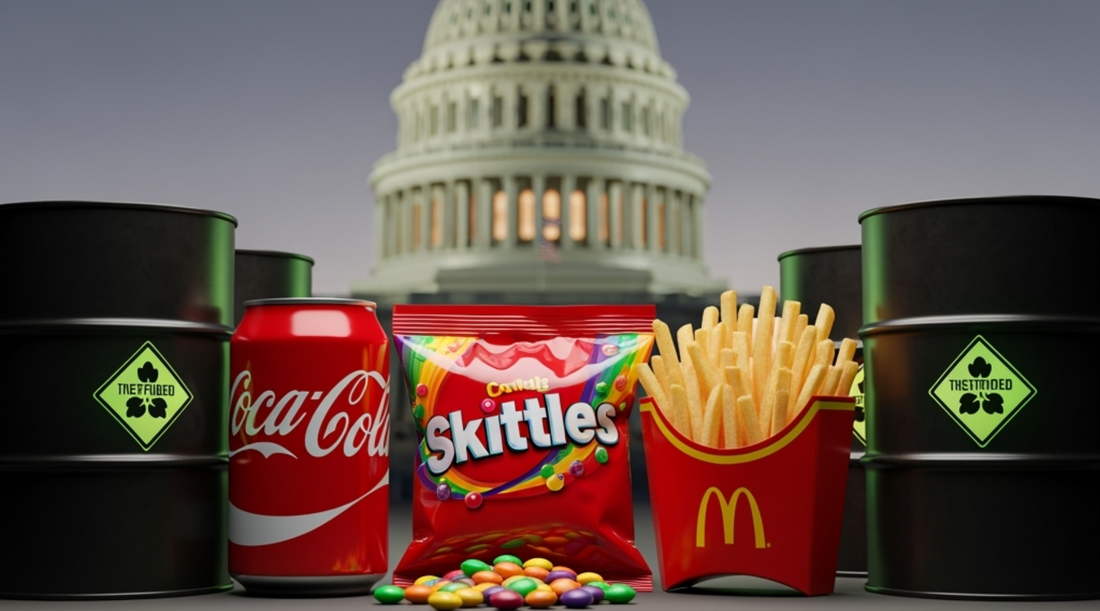
Big Food’s Band-Aid on a Broken System
Share

Big food is in the spotlight again pledging to cut dyes, seed oils, and high‑fructose corn syrup. Sounds great on paper. But are these real changes, or just clever marketing?
I was trucking full-time back in the day, living off gas station food, burgers, fries, fountain drinks, anything cheap and filling. I didn’t care about ingredients. Later, it hit me I was fueling my body with high fructose corn syrup, seed oils, and artificial dyes I couldn't pronounce.
So when Coca‑Cola talks about launching a cane sugar version of Coke, Starbucks pledges to drop canola oil, and Steak ’n Shake brags about frying fries in beef tallow, I feel skeptical. It’s nice, but it’s not revolutionary.
Robert F. Kennedy Jr.’s "Make America Healthy Again" (MAHA) movement has pushed these companies to make cosmetic changes. General Mills, Nestlé, PepsiCo, and others say they'll phase out artificial dyes. On the surface, it all reads like progress.
But here’s the catch: none of this is enforceable. Companies set a two-year window to follow through, meaning this is voluntary PR—not accountability.
The twist? The “new” recipes aren’t new at all. These companies already ship cleaner products overseas. Coca‑Cola in Europe and Mexico uses cane sugar not HFCS, and has for decades. Skittles in Europe dropped titanium dioxide when the EU banned it in 2022; Mars only slipped it out of the U.S. formula quietly in 2024. Synthetic dyes are still available here; overseas they earn warning labels or are banned outright. Many European fast-food chains use simpler ingredient lists, not because brands care more, but because law demands it.
If companies can do it abroad, they can do it here. But they only do it when forced.
Meanwhile, the political backdrop undercuts the change. The administration is facing backlash over language in the House Interior spending bill giving pesticide makers liability protection, and the EPA has rolled back Biden-era restrictions on “forever chemicals” like PFAS—not exactly moves that scream “public health first”
MAHA supporters are pushing back. Doctors, environmental groups, and mom advocates have sent Trump a letter warning that shielding pesticide companies undercuts health and could cost the GOP political support. That friction lays bare MAHA’s limits amid broader GOP alignment with agricultural interests
Keep an eye out, Kennedy is expected to release a blueprint from the MAHA Commission outlining how the administration will back its food agenda with real standards and transparency rules. That document will reveal whether MAHA is serious about holding the food industry accountable—or just cheering for voluntary pledges.
At the end of the day, awareness matters, and this pressure is something big food hasn’t felt in a long time. But don’t take ingredient swaps for reform. If they can offer dye-free candy, cane-sugar sodas, and simpler fast food overseas, we deserve the same.
Keep asking questions. Read labels. Stay vocal. Because we don’t need a band-aid on a broken system—we need a real fix.
What’s Hiding in Your Food?
Most packaged foods are loaded with hidden additives, preservatives, and chemicals that sabotage your health. That's why I created a list of harmful ingredients. Download your free copy now and take the first step toward cleaner eating and better health:
[ Get My Free Checklist Of Harmful Ingredients]
Instant access for current and new subscribers
